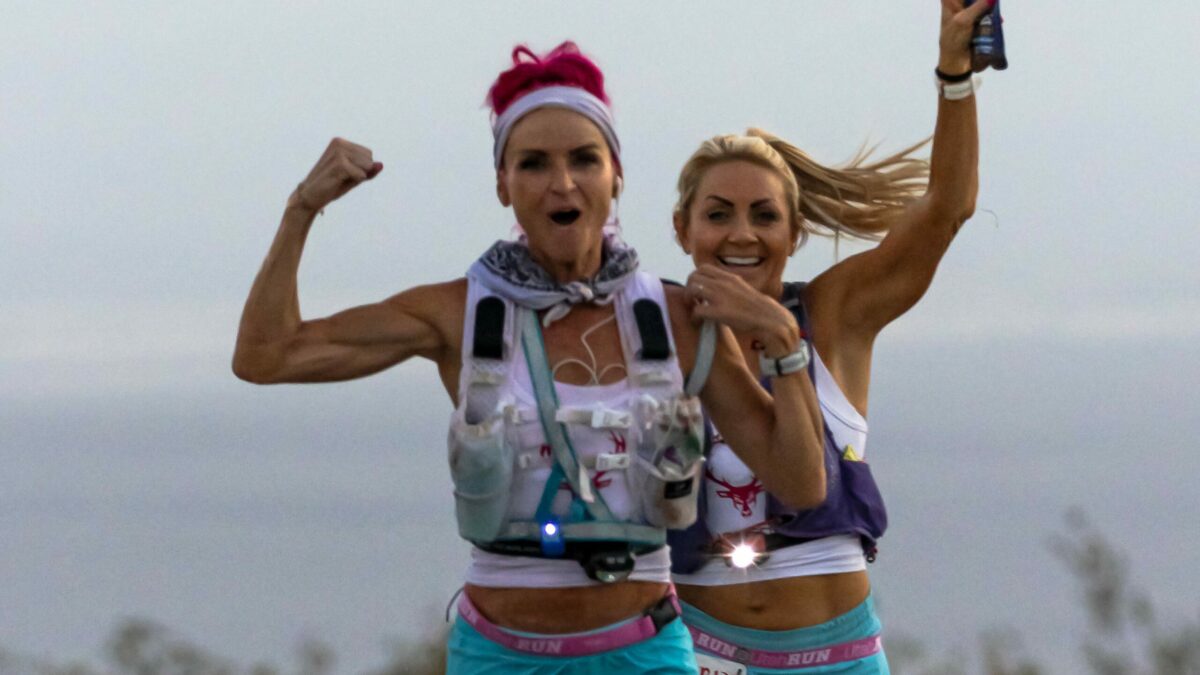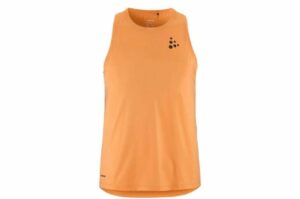Ashley Paulson wins Badwater 135 overall, smashes her own course record
The defending women's champion chopped nearly two-and-a-half hours off last year's time on slightly altered course to finish first overall; Canada's Viktoria Brown finished strong to place fourth among women
 Photo by:
Arnold Begay/Badwater/AdventureCORPS
Photo by:
Arnold Begay/Badwater/AdventureCORPS
Defending Badwater 135 women’s champion Ashley Paulson has smashed the women’s course record she set last year, chopping nearly two and a half hours off her 2022 time to finish first overall at this year’s race.
Paulson, of St. George, Utah, completed the course—an infamously hot and gruelling 135-mile (217-km) run through California’s Death Valley to Mount Whitney—in 21:44:35. In doing so she not only demolished the women’s record she set last year (24:09:34) but finished more than 20 minutes ahead of this year’s men’s champion, Simen Holvik of Norway (22:28:08). Temperatures during the race have been known to soar well above 100 F (37 C).
Placing second in the men’s category and third overall was last year’s winner, Yoshihiko Ishikawa of Japan (23:52:29), who has two Badwater 135 victories under his belt. He was followed by fourth-place finisher and second-place women’s runner Sonia Ahuja of Thousand Oaks, Calif., who trailed Paulson by nearly two hours, finishing the course in 25:42:51. Rounding out the top five finishers was 2021 champion Harvey Lewis of Cincinnati, who completed his 12th Badwater 135 in 27:26:49, finishing third among the men. Rounding out the women’s podium was Maree Connor of Lambton, Australia (27:49:24).
Viktoria Brown, the only Canadian in the field of 100 runners, finished strong, running 30:11:52 to place fourth among women and claim 13th place overall. It’s been a stellar year for the Whitby, Ont., ultrarunner, who in March broke her own 48-hour Canadian record and 72-hour world record while competing at the GOMU (Global Organization of Multi-Day Ultramarathoners) six-day world championships in Policoro, Italy.
With her commanding victory this year, Paulson becomes the first woman to win back-to-back races at Badwater since Japan’s Sumie Inagaki won the event in 2011 and 2012.
This year’s race was a little unusual, in that a section of the course had to be rerouted at mile 103.9 due to a road closure caused by flooding. With the addition of a new section, the course’s 135-mile total distance remained the same; however, the bypass meant runners had to head west at a point where they would usually go north. To enable the runners to rejoin the final sections of the traditional course while keeping the total race length at 135 miles, runners were transported by their crew vans nearly 30 km to rejoin the course. Their time travelling by vehicle was then deducted from their final race time.
“The terrain was the same on the detour versus the standard route—essentially totally flat—and sitting in a vehicle for 21 to 23 minutes was not good for the runners; our frontrunners, especially, got cold and tight during the drive and had to warm back up all over again,” said race director Chris Kostman.
Paulson’s win last year came amid some controversy. In 2016, the professional runner and triathlete accepted a ruling from the United States Olympic Committee National Anti-Doping Policies (USADA) banning her from competition in triathlon events for six months, the result of an anti-doping rule violation. She had a positive result for ostarine, a selective androgen receptor modulator (SARM), during a random sampling. Follow-up tests found ostarine in a contaminated supplement the athlete was taking. In an analysis of Paulson’s GPX files and other data, Derek Murphy, who runs the site marathoninvestigation.com, concluded that her Badwater data was clean and showed no evidence of cheating.
This year’s race, which started Tuesday at 8 p.m. PDT, and lasts 48 hours, marks the 46th running of the Badwater 135. Considered by many to be the world’s toughest foot race, the ultramarathon begins at 85 metres below sea level—the lowest elevation in North America—and takes runners up to 2,548m of altitude.

